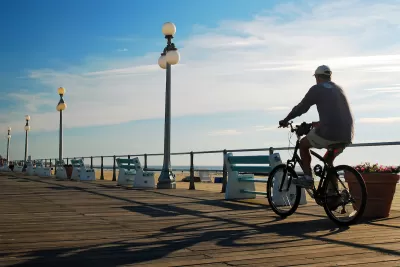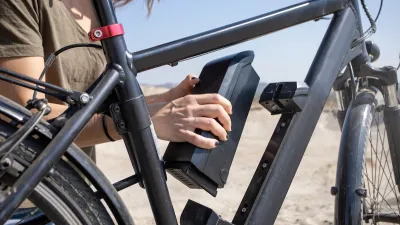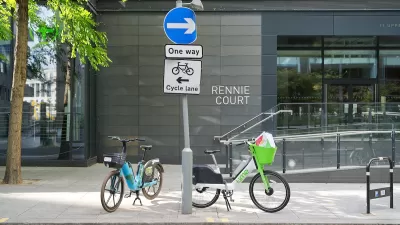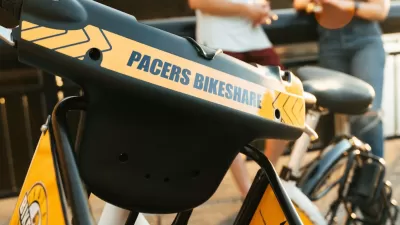A proposal to require insurance for low-speed electric bikes could hamper the adoption of non-auto modes, advocates argue.

“On Thursday, the New Jersey Senate's Transportation Committee is holding a hearing about bill S2292, which would require riders of low-speed electric bikes and scooters to register their vehicles with the state and carry liability insurance to cover themselves and anyone else who might be harmed in the event of a crash.”
According to Streetsblog USA’s Kea Wilson, the insurance doesn’t even exist yet—and the law could have a ‘chilling effect’ on all micromobility modes, including human-powered ones like bicycles. “Serious crashes involving those modes are so relatively rare, though — the National Transportation Safety Board recorded just 119 e-bike-involved fatalities between 2017 and 2021 vs. the 192,709 caused by drivers — so advocates say the legislation would do little more than increase already-steep barriers to human-scaled mobility posed by traffic violence, while undermining the climate, equity, and safety goals that low-speed modes can help communities reach.”
In Europe, e-bikes aren’t held to the same requirements as higher-speed vehicles because they are “not propelled exclusively by mechanical power.” Advocates argue New Jersey and other states should update the definition of ‘pedestrian’ to include low-speed mobility options rather than require insurance similar to motor vehicles.
Matt Moore, general policy counsel for People for Bikes, says the bill could set a dangerous precedent: “because pedal bikes are actually ridden faster on average than e-bikes because they attract more fit and athletic riders, New Jersey might someday argue that riders who don't use pedal-assist should carry insurance, too — and other communities could all too easily follow suit.”
FULL STORY: Why Every E-Biker Should Be Worried About NJ’s Proposed Micromobility Insurance Law

Alabama: Trump Terminates Settlements for Black Communities Harmed By Raw Sewage
Trump deemed the landmark civil rights agreement “illegal DEI and environmental justice policy.”

Planetizen Federal Action Tracker
A weekly monitor of how Trump’s orders and actions are impacting planners and planning in America.

The 120 Year Old Tiny Home Villages That Sheltered San Francisco’s Earthquake Refugees
More than a century ago, San Francisco mobilized to house thousands of residents displaced by the 1906 earthquake. Could their strategy offer a model for the present?

LA’s Tree Emergency Goes Beyond Vandalism
After a vandal destroyed dozens of downtown LA trees, Mayor Karen Bass vowed to replace them. Days later, she slashed the city’s tree budget.

Sacramento Leads Nation With Bus-Mounted Bike Lane Enforcement Cameras
The city is the first to use its bus-mounted traffic enforcement system to cite drivers who park or drive in bike lanes.

Seattle Voters Approve Social Housing Referendum
Voters approved a corporate tax to fund the city’s housing authority despite an opposition campaign funded by Amazon and Microsoft.
Urban Design for Planners 1: Software Tools
This six-course series explores essential urban design concepts using open source software and equips planners with the tools they need to participate fully in the urban design process.
Planning for Universal Design
Learn the tools for implementing Universal Design in planning regulations.
Ada County Highway District
Clanton & Associates, Inc.
Jessamine County Fiscal Court
Institute for Housing and Urban Development Studies (IHS)
City of Grandview
Harvard GSD Executive Education
Toledo-Lucas County Plan Commissions
Salt Lake City
NYU Wagner Graduate School of Public Service





























